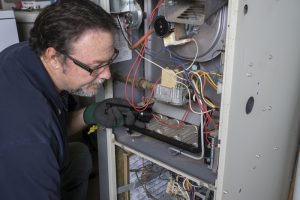You already know how important it is that we all try to reduce our use of
water. Our planet’s future depends on it! And, there are so many practical and
surprisingly easy ways for us to do that.
So, here are seven really practical ways for you to conserve water in your
home…
1. Monitor your water
bills
Check your water bill each month and if it goes up try to figure out if
there’s a good reason (filling the swimming pool). If it spikes and you don’t
know why, you probably have a leak somewhere.
Seriously, the average home wastes more than 10,000 gallons of water a year
from easily fixable plumbing leaks. It’s worth it to bring in a plumber if you
suspect you have a leak but cannot find it.
2. Use the water meter
to check for hidden water leaks
Go read your water meter and write down the number. Stop using water for
two hours. Then go back to the meter. If it’s not at the exact same number,
there’s a water leak in your house. If you can’t find it, call your home
services company to send out a plumber.
3. Use every drop
Find ways to repurpose water so it doesn’t just go down the drain. For
example, when you boil potatoes or pasta, pour that water through a colander
and into another pot to capture the hot water. After it’s cooled, this water
can be used for your household plants. You can do something similar whenever
you run the tap and wait for hot water.
4. Use your dishwasher
more
You might be surprised, but as it turns out washing dishes by hand uses a
lot more water than running the dishwasher, and even more so if you have a
newer more water-efficient model. Newer dishwashers will also adjust to use
less water for smaller loads. (If you don’t have a newer dishwasher, see #7.)
5. Run full loads in
your washing machine
You can adjust water levels to match the size of your load, but it’s even
more water-efficient to run larger loads in your washing machine.
6. Cover your swimming
pool
It takes a lot of water to fill your swimming pool and to keep it filled.
In the summer sun, pools can lose an inch or more of water each week to
evaporation. Getting a cover for your pool can save thousands of gallons of
water each season. Make it a solar blanket and you can also reduce your heating
cost. But this only works if you’re diligent about covering the pool when it’s
not in use.
7. Install a new
dishwasher
Newer dishwashers use as little as four to seven gallons per load—again
that’s a lot less than washing by hand and much less than older dishwashers.
Summary
If we all work on conserving water, we can make a big difference. While
taking these practical steps, be sure to contact a home services company if you
need help finding a water leak or installing a new dishwasher.
Continue Reading
Tags: Plumbing, Tips, water bill, water conservation
Posted in Go Green, Plumbing | Comments Off on 7 Ideas To Save On Your Water Bill (And Use Less Water)





